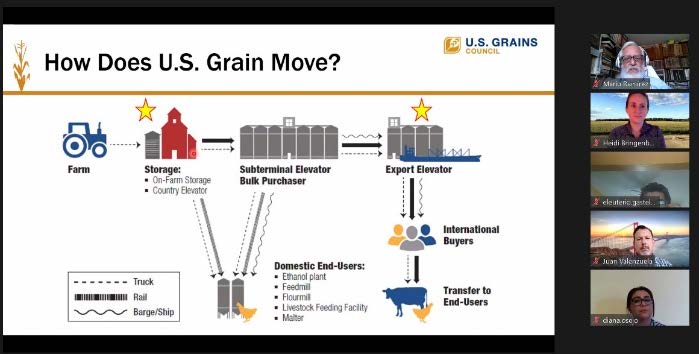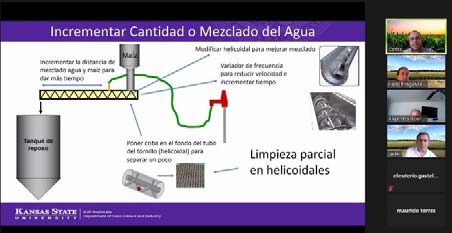Utilizing Market Access Program (MAP) funds, the Council solved a constraint that was hindering a Mexican customer’s processing of U.S. corn for its beef feeding operations. In doing so, the Council was able to support a loyal buyer of U.S. corn and in the end improve the company’s overall profitability.
Through regular outreach to present the corn quality report in May 2020, the Council became aware of challenges with broken corn and foreign material (BCFM) and other quality concerns with SuKarne the largest beef supplier in Mexico, representing 1 MMT of corn demand each year.
The Council saw the opportunity to partner with SuKarne throughout the pandemic to address the quality concerns that were negatively impacting their feed management division. In July 2020, the Council organized a series of seminars featuring the IGP Institute at Kansas State University on managing the BCFM constraint, specifically for steam rolling operations, and best practices in sampling and cleaning of grains. SuKarne reported success after implementing these recommendations and investing in the recommended cleaning equipment. Later in August 2020, a highly respected U.S. ruminant nutritionist provided a series of technical courses on accurately determining starch availability and best practices for steamrolling corn. After this program, SuKarne was able to streamline their quality control processes to improve starch yields and ultimately improve their profitability. Through both engagements, the staff at SuKarne learned that U.S. corn quality was not the issue, it was an internal management strategy that was lacking and through the Council’s support they were able to address these constraints and in turn have more confidence buying U.S. corn in the future.
Through these technical short courses in grain management, SuKarne which buys over 1 MMT of U.S. corn was able to save $3.5 million in feed costs through more efficient feed processing practices. This savings to the company ultimately translate to greater overall profitability and increased the incentive to use U.S. corn over domestic corn. The Council invested roughly $8,000 MAP funds to conduct virtual trade servicing through these quality management short courses, which resulted in the protection of around 1 MMT corn demand from the United States.
About The U.S. Grains Council
The U.S. Grains Council develops export markets for U.S. barley, corn, sorghum and related products including distiller’s dried grains with solubles (DDGS) and ethanol. With full-time presence in 28 locations, the Council operates programs in more than 50 countries and the European Union. The Council believes exports are vital to global economic development and to U.S. agriculture’s profitability. Detailed information about the Council and its programs is online at www.grains.org.


